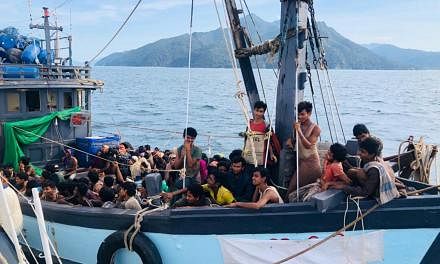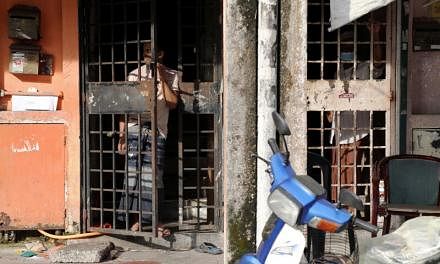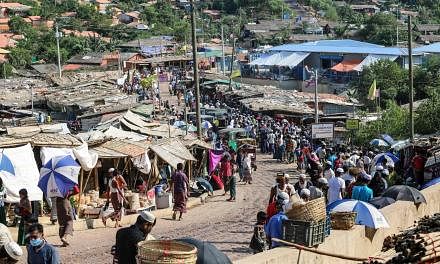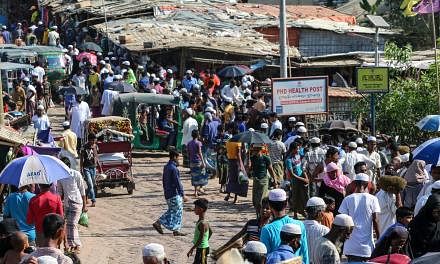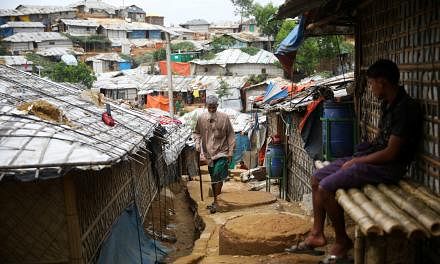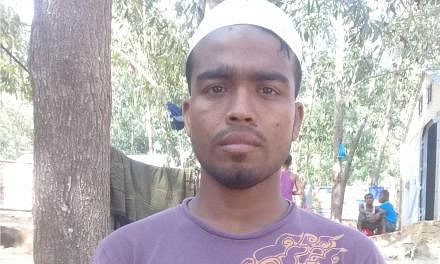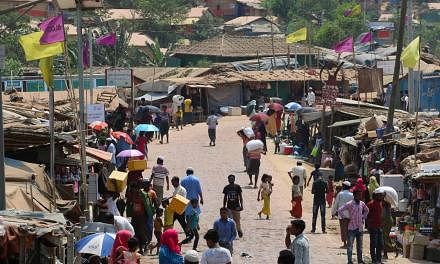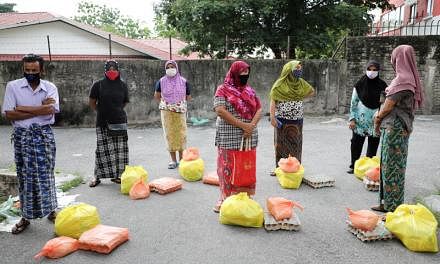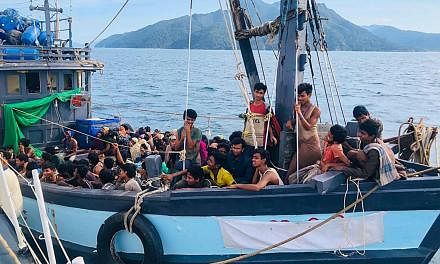BANGKOK (THE NATION/ASIA NEWS NETWORK) - The repatriation of the first Myanmar Rohingya family from the Bangladesh border to Rakhine state was little more than a cheap public relations stunt.
We are still far, far from seeing the crisis resolved.
The Myanmar government used no less a sociable channel than Facebook to announce on Saturday that a family of five had returned that morning to the town of Taungpyoletwei, where there is a "repatriation camp", though the family is staying temporarily with relatives in another town, Maungdaw.
The Myanmar News Agency followed up on Sunday with a series of photo handouts - pictures taken the day before, of immigration officials presenting the family with identification documents and health workers giving them check-ups.
The family members are the first Rohingya to be repatriated to the strife-torn state since August 2017, when a spate of violence forced 700,000 Muslims from their homes into refugee camps along the Bangladesh frontier.
The exodus was the result of discrimination and atrocities in Rakhine committed by authorities and bigoted so-called Buddhists acting as vigilantes. They characterised their assaults as "clearance operations", but the United Nations concluded it was more a matter of ethnic cleansing.
Bangladesh and Myanmar reached a deal in November to repatriate the refugees, but the former could only scoff at the "first family" being paraded for the press on Saturday.
Bangladesh Home Minister Asaduzzaman Khan called it a farce. He pointed out that this family had not even made it as far as Bangladesh, but instead had been mired in the no-man's land between the nations.
"I hope Myanmar will repatriate all the refugee families within the shortest possible time," Khan said.
The repatriation plan has in fact been on hold because violence continues in Rakhine and people are still fleeing for their lives. The UN and other agencies concur that the situation there remains unsafe, and the majority of refugees in the border camps are adamant they will not return until it is, and until there is a guarantee that they will again be recognised as citizens, a status withdrawn from them in 1982.
The family taken in on Saturday received "national verification cards", which in no way recognise them as citizens.
They arrived with no assurance they will not be abused again, let alone receive fair treatment from the government or the majority Buddhist populace.
As we have said before, this terribly complicated situation requires a comprehensive solution.
A committee headed by former UN chief Kofi Annan provided the groundwork for that solution many months ago and, more recently, de facto leader Aung San Suu Kyi chose Thai former foreign minister Surakiart Sathirathai to advise her about implementing the recommended measures.
Annan's important and reasonable guidelines must be fully digested in Nay Pyi Taw and implemented urgently and in good faith. Prior to any actual repatriation, Myanmar must demonstrate to the international community that the Rohingya homeland is safe and that the people returning will be treated with fairness and compassion.
It might be too much to expect a complete end to the historic animosities among the Muslim, Buddhist and Hindu communities of Myanmar, but comparative harmony is surely within reach. For now, give the Rohingya back their citizenship and grant them access to public services without discrimination. Protect them from prejudice and abuse. And let's proceed from there.
The Nation is a member of The Straits Times media partner Asia News Network, an alliance of 23 news media.

